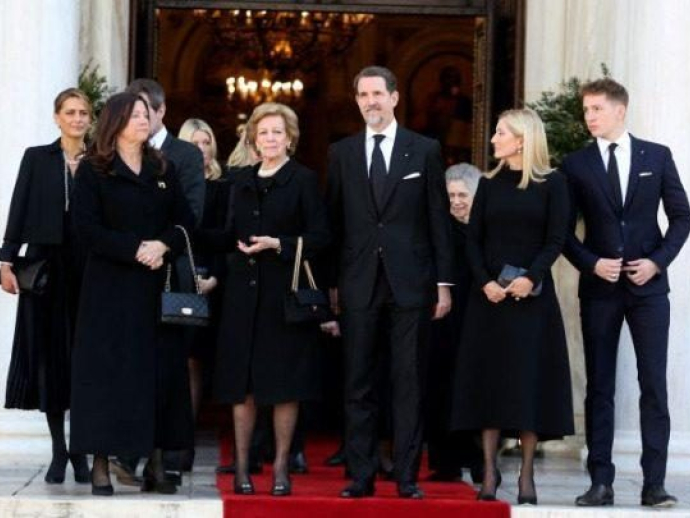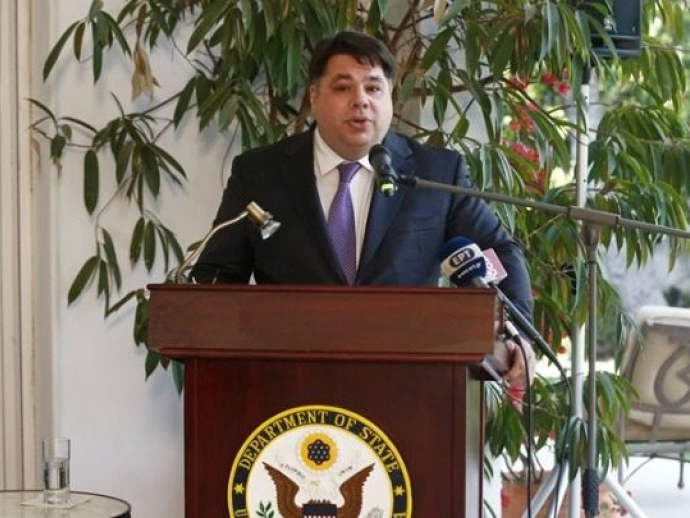Holy Tuesday: Where is it dedicated and what are the customs of the day
In the Orthro of Holy Tuesday, which is sung on the evening of Holy Monday, the condemnation of the Pharisees is read from the Gospel of Matthew (22, 15-23, 39). In the Service, the reading from the Gospel of Matthew continues, where the End is spoken of. This is what both parables of the day are talking about.
The first is the parable of the ten virgins. "Five of them were wise" and had taken enough oil with their lamps, "five were children", their lamps went out and they were not admitted to the wedding supper. The other parable is of the talents which teaches us to be industrious and to cultivate and increase our spiritual gifts.
On the evening of Holy Tuesday, the liturgy of Holy Wednesday is sung where it is dedicated to the sinful woman (Lk. 7,47) who in repentance anointed the feet of the Lord with myrrh, and was forgiven for her sins, because she showed great love and faith in the Lord, while one of the most well-known and popular tropes of religious hymnology is sung.
Holy Tuesday is dedicated to cleaning the house, in many areas the cookies and buns are made.
What do we learn on Holy Tuesday from the two parables?
Of the ten virgins (Matthew 25:1-13) who teaches us to be ready and full of faith and charity.
Of Talents (Matthew 25,14-30), which teaches us to be hardworking and we must cultivate and increase our spiritual gifts.
On Holy Tuesday (Monday Evening) we commemorate the well-known parable of the Lord about the ten virgins. The Church calls us to be ready to welcome, holding the lamps of our virtues, the heavenly Bridegroom, the Lord Jesus, Who will come suddenly, either specifically at the moment of our death, or generally at the Second Coming.
He also calls us, bringing before us the parable of the talents, to cultivate and increase the gifts that God has given us.
The trope of Cassiana
On the evening of Holy Tuesday, the liturgy of Holy Wednesday is sung in the Churches. The last trope in the sequence is that of the pious and learned poetess of Byzantium, Kassianis.
From the Byzantine chronicler Simeon Magistro (990 AD) we learn that Euphrosyne, mother of the emperor Theophilus and daughter of Constantine VI, in her attempt to marry her son, in the year 830 AD, organized in the magnificent Triclinio hall of palaces of Constantinople, a large gathering of the most beautiful girls of the Empire. The attendance was large from "beautiful virgins". And when they were lined up, sitting on luxurious couches, the emperor Theophilus came before them to choose his future wife and empress, giving whoever he chose a golden apple.
The most beautiful was Kassiani, whose beauty dazzled the young Theophilos and to whom he was going to give the apple, a symbol of his preference. However, wanting to find out whether her intelligence was proportional to her beauty, he said to her: "Os ara di gyunikos erryi ta faula" ("From a woman bad things begin"), implying Eve. But Cassiani was not surprised and, wanting to show her intelligence, she replied: "But also through women come the cretins" ("And from the woman come the best, the noblest"), implying the Virgin Mary, who brought the greatest good into the world .
However, this really intelligent answer was characterized by Theophilus as containing some pretentiousness and frivolity, so he gave the apple to the also beautiful, but modest Theodora.
Kassiani was disappointed by her failure and made the decision to withdraw from the world and become a monastic. She built a monastery with her own money, which later took her name, dressed in the monastic form and devoted herself to the worship of Christ and to poetry, thus combining her deep piety and her penchant for letters. It is even said that after her failure he said: "Because I have not become queen of this temporal world, I will become a subject of the eternal Kingdom of Christ."
It was there in the monastery that her innate artistic talent and her deep religious feeling manifested, composing church hymns, tropes, Idioms. There, in the quiet and evocative atmosphere of the monastery, he also composed the famous Idiomello "Tropary of Kassiani" from her name, which the Orthodox Church later established as the Doxasticus of the Apostiches of the Orthrus of Great Wednesday.
It seems clear that Cassiani was inspired by this idiosyncratic trope from the words of the Evangelists, who do not refer to Mary Magdalene, as many believe, but to the nameless sinful woman, the adulteress, whom Christ saved from certain stoning by the angry crowd of Pharisees for her moral transgression, with those words of His:
"I cast the sinless first stone on her." And when later Jesus found himself in the house of Simon the Pharisee the leper, that sinful woman felt the need to go and express her gratitude and devotion to the Savior Christ. She buys perfumes, dresses modestly and modestly and humiliated and broken, with tears in her eyes, comes and washes the feet of Jesus and wipes them with her disheveled hair. Those tears of hers were tears of mercy and brokenness and she cries with passion that the God of love and forgiveness may have mercy on her.







































































































































































































































































































































































































































































































































































































































































































































































































































































































































































































































































































































































































































































































































